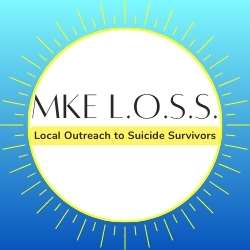You are not alone.
You are not alone when experiencing a loss due to suicide. Postvention is a collaborative approach to support individuals who have experienced a loss due to suicide.
What is postvention?
Postvention is the support and help given after a suicide has happened. It focuses on assisting people who are affected by the death, such as family, friends, coworkers, and communities. The main goal of postvention is to reduce the risk of more suicides, help people deal with their grief and pain, and support healing in a healthy way. Postvention is considered an important part of suicide prevention efforts. To be most effective, postvention strategies and procedures should be proactive, collaborative, and reflect the context of the community.

Special focus should be given to:
- Support for Grieving Individuals and Communities: Offering emotional support to people through counseling, support groups, collective healing practices, and other resources.
- Crisis Intervention: Providing immediate help to those close to the person who died, as they may be at higher risk for suicide themselves.
- Education and Awareness: Teaching the community, friends, and family about warning signs of mental health crises and suicide to help them support themselves and others.
- Reducing Stigma: Addressing the stigma around suicide and mental health by encouraging open conversations and providing safe spaces for people to share their feelings.
- Contagion Prevention: Preventing suicide contagion, or the risk of others attempting suicide after exposure to it, through responsible media reporting and offering resources to those at risk.
Proactive Support: MKE Local Outreach to Suicide Survivors (MKE L.O.S.S.)
What is it?
Active: Direct outreach to offer grief and bereavement support to suicide loss survivors
Supportive: For suicide loss survivors
Navigation: Referral to therapeutic services and psychoeducation
Consistent: Initial contact with follow-up for at least 2 years
What it is not
Passive: Individuals seek resources and support on their own
Support for attempt survivors
Therapeutic services
One-time support
Receive Support from MKE L.O.S.S.
Postvention Resources
Testimonials from MKE L.O.S.S. Participants
“Really appreciated that we were reached out to, instead of having to do the work. When it’s offered to you, so much more meaningful.”
“How quickly you reached out, unexpected, but really welcome support. A surprising thing I didn't expect. It was a safety net.“
"I was surprised to hear from the postvention coordinator, in a delightful way, almost magic. Maybe sooner would be better, but the fact that reach out occurred was great.”
Why postvention?
How many?
Over 50% of the US population has been bereaved by a single suicide.
Impact of Loss
Higher rates of anxiety, depression, suicidal thinking & behavior
Prolonged grief
Increased stigma & guilt
Grief & Bereavement
Effects of trauma can also contribute to a delay in processing grief.
Healing
-Average time to receive mental health services decrease from about 4.5 years to about 34 days.
-Decrease in suicidal thoughts & behavior.
-Potential for post-traumatic growth (positive psychological changes)
Research

Current Projects
MKE Local Outreach to Suicide Survivors
Suicide is a major public health issue, with rates in the U.S. rising by 35% from 1999 to 2018, and it is a leading cause of death, particularly among younger age groups. Survivors of suicide loss are at an increased risk of suicide, making their support a critical part of suicide prevention. This project aims to reach out to suicide loss survivors in Milwaukee County to assess their resource needs, develop a community-wide resource guide, and collect data to guide local suicide prevention efforts.Creating Meaning After Loss: Art Therapy Process Group for Suicide Loss Survivors
This pilot project aims to evaluate an eight-week art therapy processing group for individuals who have experienced a suicide loss.Finding Peace for Youth Suicide Survivors
A suicide loss impacts an estimated 135 people. In 2022, 929 suicides in Wisconsin led to over 125,000 individuals experiencing suicide loss, with negative mental health outcomes such as prolonged grief, psychological distress, and suicidal thoughts. Active suicide postvention support improves mental health outcomes and reduces time to access services. However, gaps exist in resources for youth survivors, particularly among non-White families. This project aims to provide tailored support through book club groups for youth, investigating their impact on mental health and participants' ability to make meaning of the loss.Contact the Division of Suicide Research and Healing
We would love to chat with you about any of our research or programming! Contact us using the information below.
Sara Kohlbeck, PhD, MPH
Director
(414) 955-7667
Tricia Monroe, MEd, MCHES
Postvention Program Manager
Neal Davis, BA
Postvention Program Coordinator

